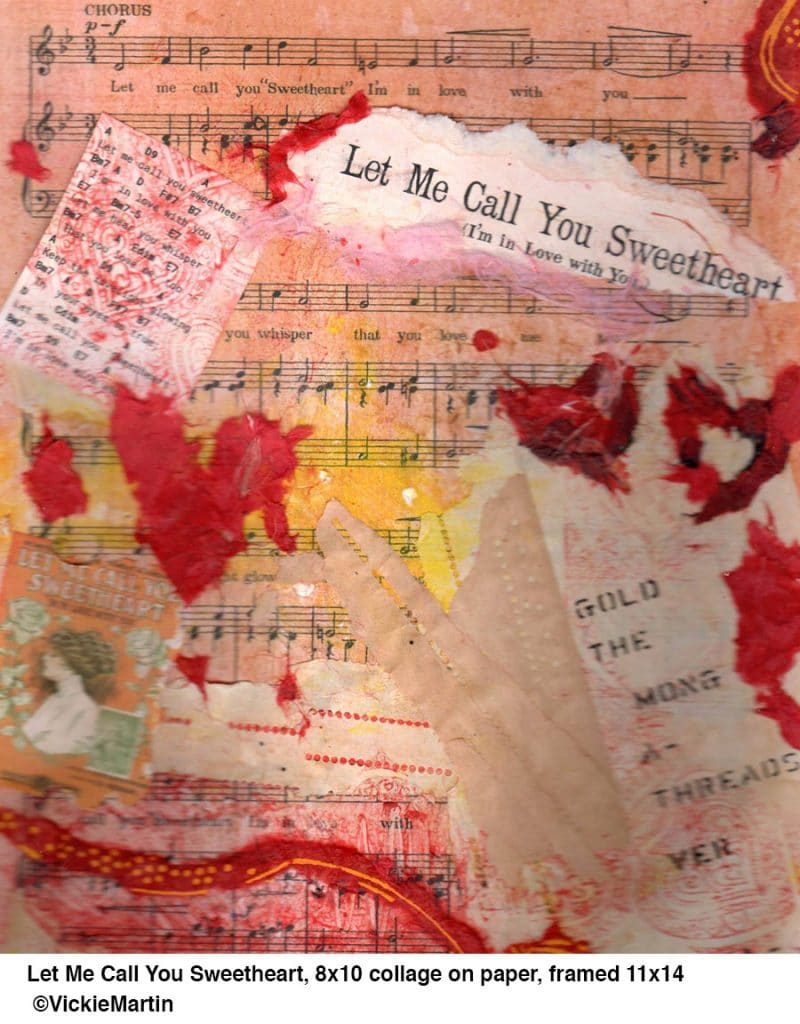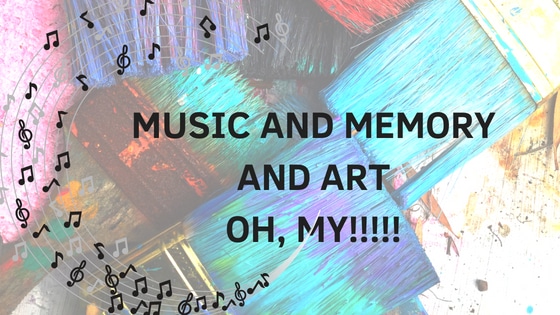“Alice” had been in totally non-verbal and in memory care for over a year. The only sounds she made was a strange clicking noise. But the clicks she made had a rhythm. A visiting music therapist began experimenting with this rhythm and after some hit and misses, he finally realized it was the rhythm to the song “Let Me Call You Sweetheart”. This is what she had been trying to communicate. When she heard the song, she began humming along, eventually singing the words. This was the song that was used in her wedding!

I found a piece of music, did a little research on the history of the song, even played it on the piano a few times, and the above collage was born, complete with hearts. The words on the right “SILVER THREADS AMONG THE GOLD” is music from a player piano which is pre-programmed music recorded on perforated paper.
Music and memory has become such a popular topic there is a wikipedia page dedicated to Music-related Memory. Music engages MORE parts of the brain that anything else we do. First of all, it connects the left and the right parts of the brain. But that isn’t all it does, tt engages movement, even it is just clapping or tapping your toe. Music engages the auditory cortex, and it engages the hippocampus – which is where memory is stored, And of course, there is an emotional response to music.
In dementia patients, familiar music has been proven to reduce agitation, improve social interaction and facilitate cognition. Music has also been proven to reduce depression, a common occurrence with dementia patients. We know dementia destroys the areas of the brain responsible for episodic memory, but usually procedural memory is retained. What is procedural memory? lt is the long-term memory which aids the performance of particular types of tasks without conscious awareness of these previous experiences.
If you know a story about the effect of an individual piece of music on an individual, I’d love to hear about it. There have to be dozens of stories like this out there that seem to prove that music has the ability to “wake” people up.
In case, you don’t remember how this song goes, here is a quick video of Martha Levison (Shirley McClain) in an episode of Downton Abbey.
